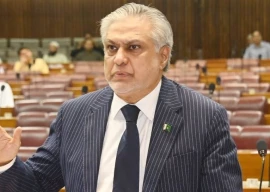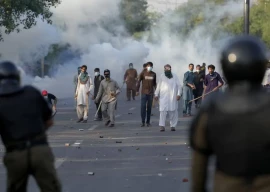
As we know, traditionally, gas supply comes under pressure in the winter months in the same way as electricity is in short supply in the summer months. But things have gotten progressively worse. How long can we ignore the fact that the situation isn’t getting any better?
The present gas supply situation was predicted at least two decades back and it is the lack of planning on part of successive governments which has brought us to this situation. We could have invested in other areas to ease the burden on this precious natural resource, but this did not happen.
We are now looking at import of gas to fulfill growing local demand which continues to rise with each passing year. This would add to our import bill.
There are now predictions that demand will ease off once the plethora of power plants go online and with Thar coal coming into the equation. While this is encouraging, the bigger question remains as to what we are doing on two fronts - gas conservation as well as alternative energies. We are a resource rich country but are not willing to turn this into a surplus of energy sources.
We also need to spend what we have wisely. There has been no attempt to work towards gas conservation. We are seeing how gas is used with such abandon, possibly because of its low cost and convenience.
While power generation is the biggest consumer of gas along with industrial consumption, domestic consumption including CNG for vehicles is also a sizable chunk. What are we doing to lessen the burden?
The government has to take some hard decisions. This could mean taking symbolic steps to drive home the lesson of conservation. To begin with, domestic gas generators need to be banned. While these generators may not amount to any significant consumption, it is a trend that should be discouraged.
Households who can afford generators should use petrol instead. It is more expensive and less convenient. As a result, usage is lesser. The other decision that needs to be taken is to restrict CNG to commercial and public transport vehicles. In the lines for CNG today, one sees SUVs as well as other gas-guzzlers. This is criminal.
If the owners of these vehicles can buy such luxury items, they may well run them on petrol or diesel. They are an unnecessary burden on the CNG demand. Another advantage of allowing CNG only to those vehicles that have commercial number plates is that the taxis and rickshaws will be able to give competition to the untaxed app-based private cab services that have proliferated over the past five years or so.
Gas theft is again something that needs to be taken more seriously. There are no exact figures of gas theft in the country, but a comprehensive survey will reveal unusually high numbers. Much of this is done in connivance with staff of the state-owned gas distribution companies. This must be brought down.
A national campaign also has to be launched on promoting gas conservation. Generally, people are careless on the usage of natural gas in Pakistan more so because it is one of the cheapest fuels available. We cannot continue to waste this precious natural resource.
Alternative energies also need to be looked at. Many cities around the world have made it mandatory to use solar heaters for domestic use. We should do the same.
Much gas is wasted owing to faulty thermostats and unnecessary heating of water in all weathers. We should take advantage of new technologies.
More attention should be paid to solar power. If households can harness solar energy, they can also use this to heat or cool. It will be a lesser burden on the national grid. All this requires is cheaper equipment and awareness.
This is possible if the government takes the lead. It is time for us all to look at how we can reduce consumption and save on energy costs. Easier said than done.
Published in The Express Tribune, February 11th, 2019.
Like Opinion & Editorial on Facebook, follow @ETOpEd on Twitter to receive all updates on all our daily pieces.











































COMMENTS
Comments are moderated and generally will be posted if they are on-topic and not abusive.
For more information, please see our Comments FAQ